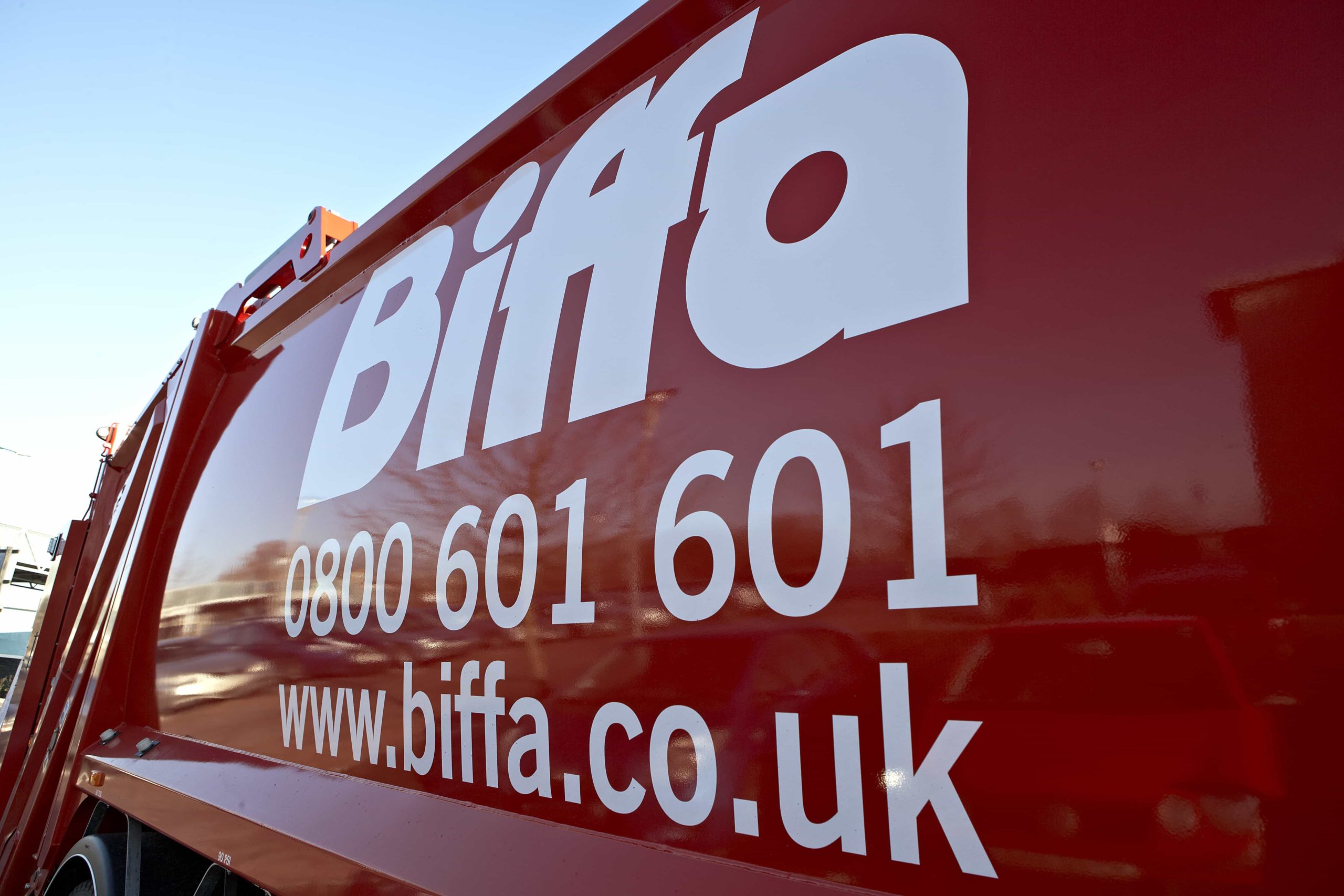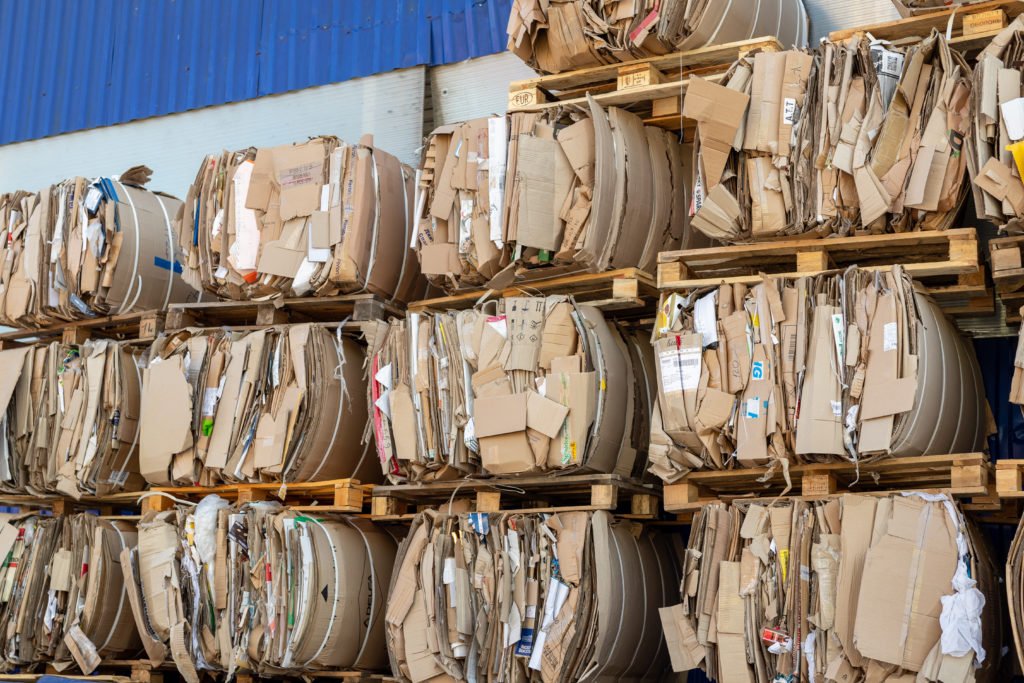The ruling was announced on Friday 3 July 2020, and sees the waste management company lose its case in the Court of Appeal in which it appealed against convictions which were determined at Wood Green Crown Court in June 2019 (see letsrecycle.com story).
The waste material, which was dispatched from the company’s Edmonton materials recycling facility in north London, primarily as waste paper for recycling at two Chinese paper mills, was stopped at the port of Felixstowe and never left the UK in May 2015.
The company was sentenced to fines totalling £350,000 and prosecution costs of £240,000 by the Crown Court.
Category B3020

According to the Appeal Court ruling, material could be exported as “green list waste” under the category B3020, as “paper, paperboard and paper products waste”. While paper can be exported from the European Community area, the Court notes that under the Shipment regulations, there is a list, called Part 3, of wastes which cannot be exported and this include category “Y46, waste collected from households”.
Breach of the rule is specific, says the Court, in that there is no defence such as “reasonable practicability or the taking of all reasonable precautions” – the offence is one of “strict liability”.
Referencing the facts of the case, the Court of Appeal ruling says that agents of the Chinese mills had the purpose of checking that the waste consisted of at least 98.5% of waste paper.
The case relates to household waste which Biffa collected from a number of different areas. It is explained that while some of the paper was collected as single stream, some was collected as mixed recyclables and the purpose of the Edmonton MRF was to remove contaminants.
Felixstowe
At Felixstowe, Environment Agency officers broke down three bales and found items such as clothing, plastic bags, bottles, nappies, incontinence pads and hot water bottles.
The ruling explains that the issue at the Crown Court trial was whether the jury was sure that the containers of material leaving Edmonton comprised category Y46 household waste.
Discussion takes place in the judgement over an earlier appeal regarding the legal interpretation of the legislation, and it is restated that the decision for the trial regarded the Y46 classification.
The trial proceedings are discussed including the fact that Biffa reported that the waste paper was recycled in China using “very modern, very large machines”. The bales would be broken open and the waste paper go straight into the pulper, where it was heated by steam injection and any contaminants removed and chemicals “killed bugs”.
“The bales would be broken open and the waste paper go straight into the pulper”
The Appeal Court ruling was on rulings given by the Crown Court judge. The judge had not allowed Biffa to argue that the waste met the Chinese standard of acceptability for recyclable waste paper, saying that “if the waste was proved to be Y46 household waste, then the question of whether it could subsequently be recycled in an environmentally sound manner was irrelevant” and that in any event it was not relevant for the jury to know – “whether it meets Chinese standards of acceptability, whether the Chinese could successfully process what they receive into a form that is useful or acceptable to them”.
Discussion in the appeal was also around the 1.5% level but this point was ruled against by the court as it would be difficult to separate evidence as to the measurements from evidence as to the standards.
And, the judge allowed the prosecutor to disclose that Biffa had been prosecuted in the past for breaches of environmental regulations.
Appeal grounds
In the Appeal Court two grounds of appeal were submitted by Biffa.
“Ground 1: the judge erred in law in excluding, as inadmissible and irrelevant, factual and expert evidence as to (1) whether the disputed waste complied with Chinese standards for recyclable paper, and was recoverable (ie, recyclable) as paper in China; and (2) whether the waste could be recovered in an environmentally sound manner in China.
“Ground 2: the judge erred in acceding to the respondent’s application that evidence be admitted of the appellant’s bad character in order to correct an apparent false impression under s101(1)(f) of CJA 2003.”
‘Edmonton focus’
“The nature, quality and quantity of contaminants have to be considered by the jury”
The Appeal Court ruling noted that for the prosecutor: “It is submitted that the legislation casts its focus upon the conduct of the exporter, not on what happens to the waste when it reaches its destination. The export of Y46 household waste is prohibited and therefore it matters not what might be the effect of a particular contaminant or how the waste will be treated in the country of destination. Beside BV [reference to another case] shows that if Y46 household waste is to become B3020 paper, it must be properly sorted. In the circumstances of this case, therefore, the focus is on Edmonton, not China. The nature, quality and quantity of contaminants have to be considered by the jury in order to decide whether the waste has been properly sorted, not to decide what will happen in another country. Otherwise, the same waste could be differently categorised according to its country of destination, which would be contrary to the purpose of the legislation.”
The Appeal Court reflecting on the case discussions said that: “It follows, as both parties recognise, that the correct categorisation of the waste material in question must be determined as at the point where its export begins: here, when the loaded containers left the Edmonton facility. If at that stage the material is properly categorised as Y46 household waste, its export to a non-OECD Decision country is unlawful, regardless of what might happen to it when it reaches its destination.”
The Appeal Court discussed sorting of paper and the role of the MRF but comes back to the point that “it remains necessary for the jury to make an overall assessment of the quantity, nature and quality of the contaminants, and to make its own judgment as to whether the waste in question was still Y46 household waste when its export began”.
Ruling
In its ruling, the Appeal Court agrees with the Crown Court judge that evidence given by Biffa as to compliance with Chinese standards or the mill’s ability to recycle the waste was inadmissible. Accordingly the judge was not in error as claimed by Biffa in part of its High Court appeal.
The second ground of appeal was regarding allowing the jury to hear of Biffa’s previous environmental convictions. The Appeal Court says that this was allowed because Biffa had reasoned that it was not the sort of company which would commit an offence.
Justices
Three justices were involved in the decision, Lord Justice Holroyde, Mr Justice Lavender and HH Judge Chambers QC. The case was heard of 23-24 June 2020 and the judgement released on 3 July 2020. The full ruling is available HERE.










Subscribe for free